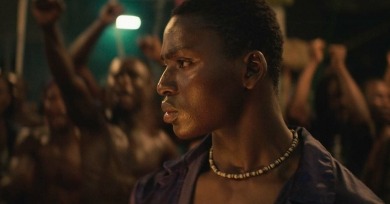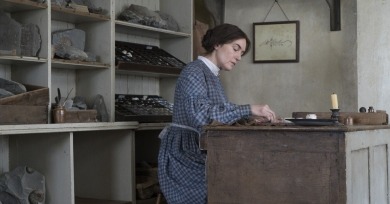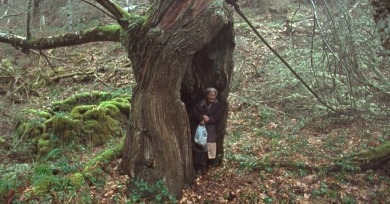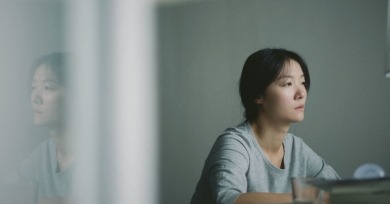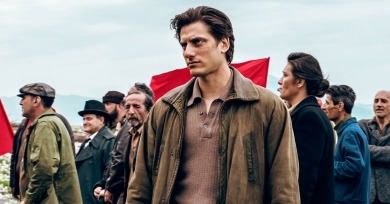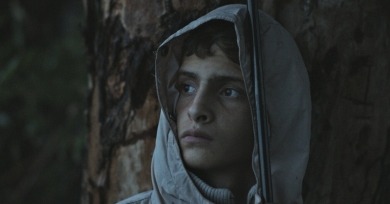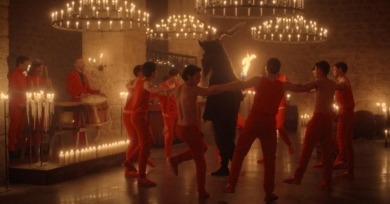Reviews
Night of the Kings is a testament to a more inclusive future: actors are sourced not only from Abidjan but also from France and Burkina Faso, and the director pointedly serves us up a medley of western art touchstones and West-African traditions.
It comes as a relief that Francis Lee is not a punishing filmmaker. We are not made to observe Mary living out these well-documented instances of discovery and loss onscreen. Nor are we inclined to reduce her life to a quest for notoriety, foiled by Victorian paternalism.
Fire Will Come, with its single location and small cast, is a more focused work than Mimosas, but maintains a similar sense of possibility as the earlier film, of things unknowable to the viewer. What’s really important may be happening somewhere outside of the frame.
The Calming consists of tableaux as elegant and precise as blocks of ice, fixing Lin in the solitude of hotel rooms, cars, trains, and parks, or in moments of hushed chitchat with a curator in Tokyo, a colleague in Beijing, a friend in Hong Kong.
In adapting London’s novel, Marcello and his screenwriting partner Maurizio Braucci have transposed Eden’s story from turn-of-the-century Oakland to the coast of Naples, but they’ve also left the question of when intentionally unresolved, indeterminate.
Filming in various countries across the northern Levant, though never specifying which from scene to scene, Rosi chooses small, spare stories that are more concerned with affecting the viewer than informing them.
McQueen toggles between fiction and historical recreation, while attempting to imbue nuance and depth to his depiction of black life in a London West Indian community.
Diving fully into the fantastical, Green has here turned the allegorical dimensions of his prior films inside out. Steeped in myth and satirical humor, the film betrays a playfully perverse sense of humanity and moral comeuppance.
In the spirit of films like the Chantal Akerman documentary No Home Movie and I Go Gaga, My Dear, by Naoko Nobutomo, Johnson tries to capture him on camera to come to terms with his eventual disappearance, while also somehow keeping him alive.
The Last City continually trades on a pervasive, pointed sense of absurdity, underscoring our distorted perceptions of the world and its sundry surfaces.
There is something almost hopelessly quaint about watching public servants with decent intentions attempt to better the lives of their constituents through policy.
In this nonlinear narrative, which abruptly, frequently jumps back eight years in time to glean moments from Sibyl’s former life and love, choppy scenes have the effect of disorienting, painful memories resurfaced, like picking up the disordered pieces of diary pages torn to bits.
This plague is in no way biological or scientific; it is profoundly subjective and insurmountable. Seimetz stresses the inexplicable nature of the belief by depicting it as a sort of neon Protestant visitation that appears to each successive victim, rendered by cinematographer Jay Keitel as a hypnotic light show.
